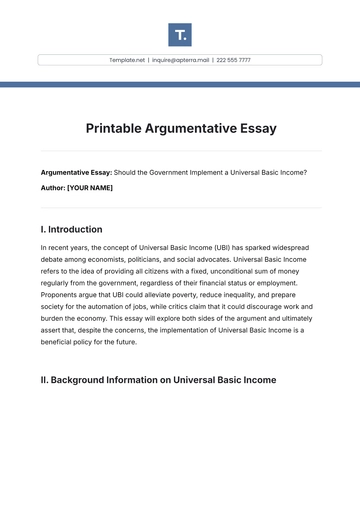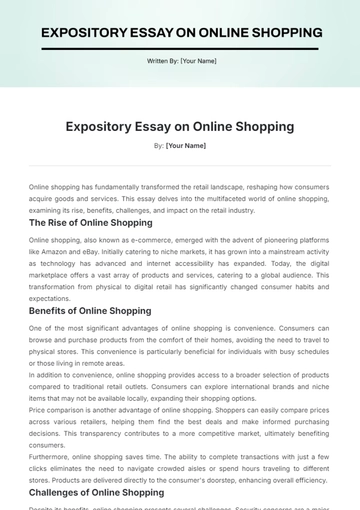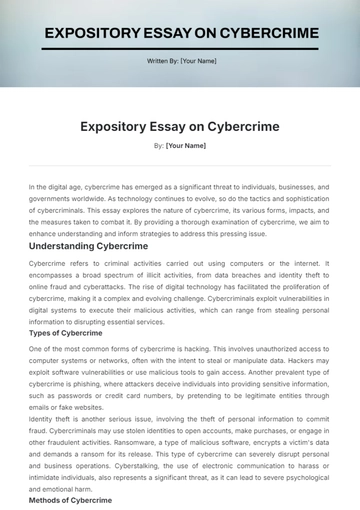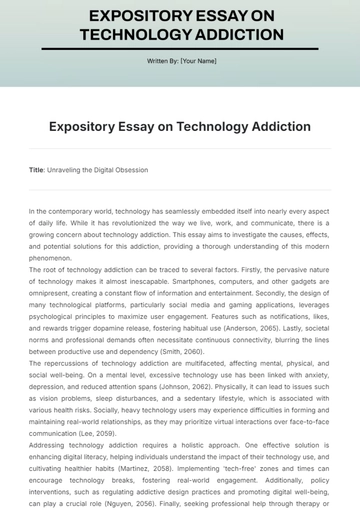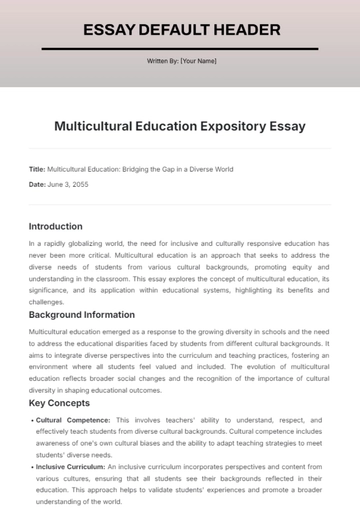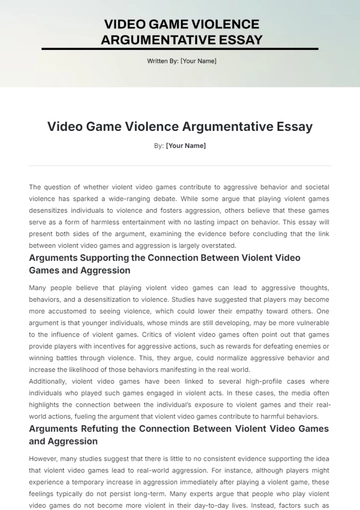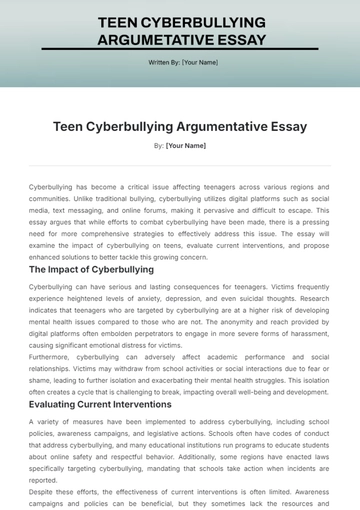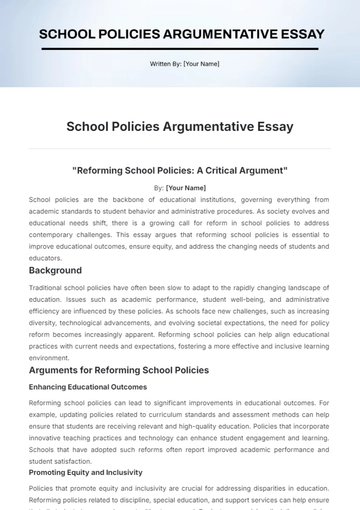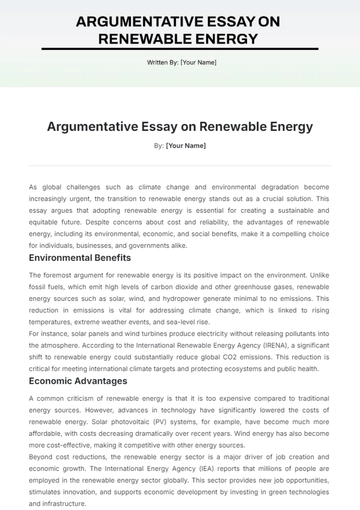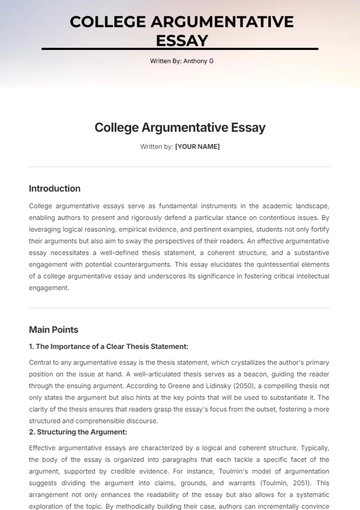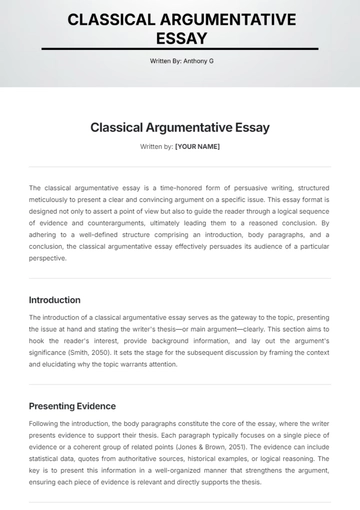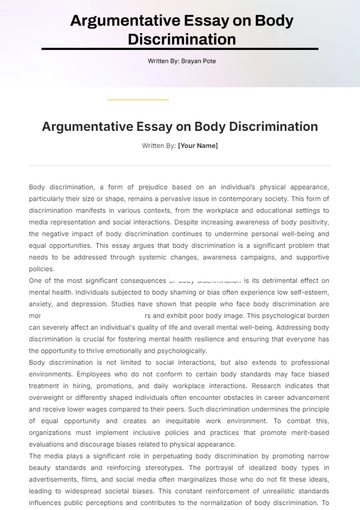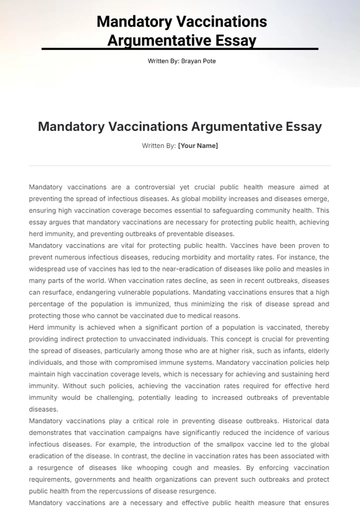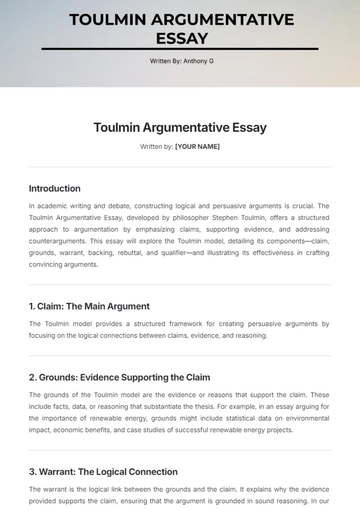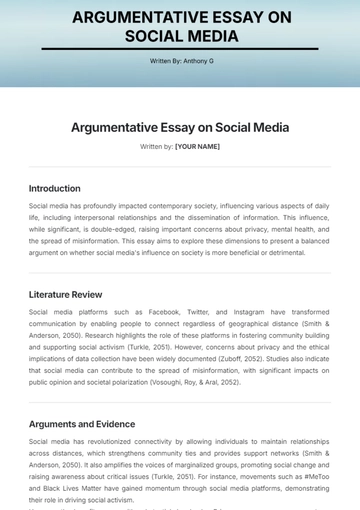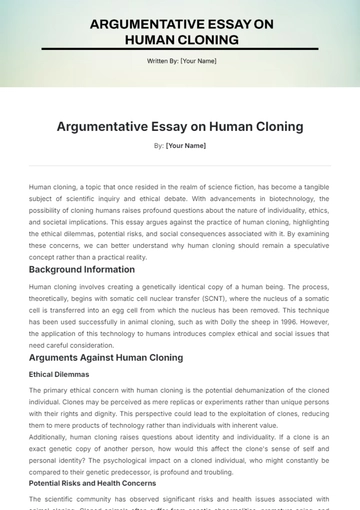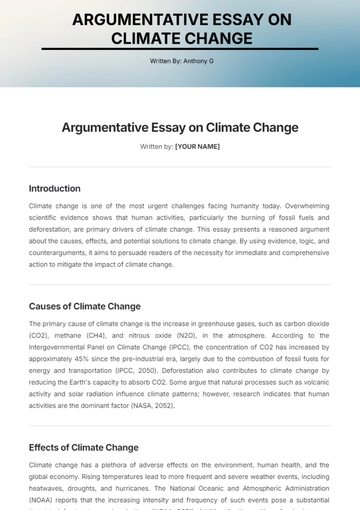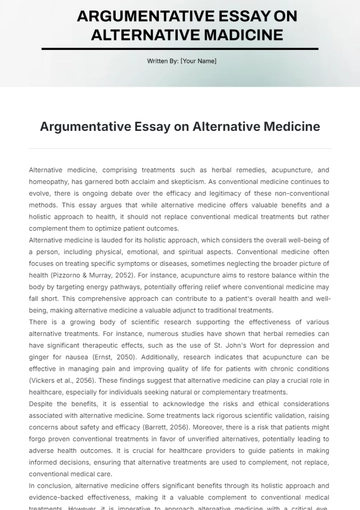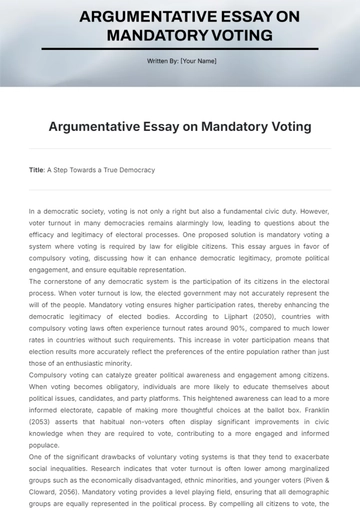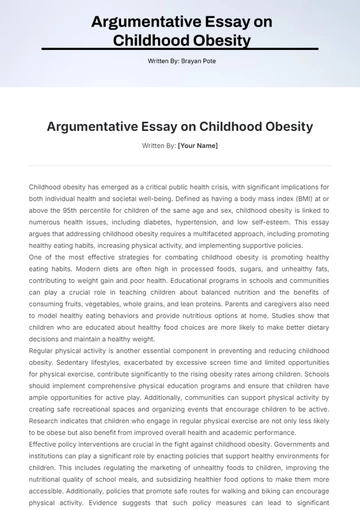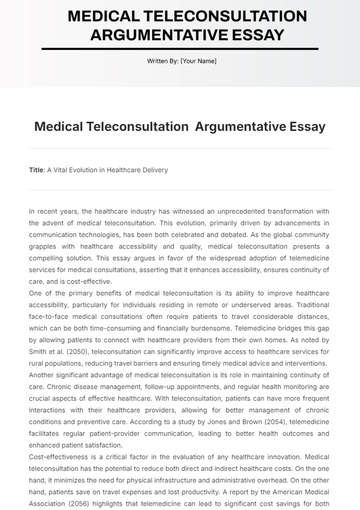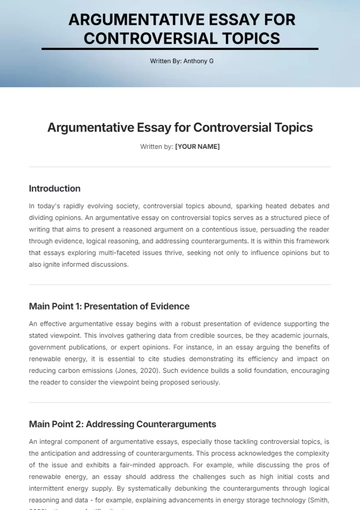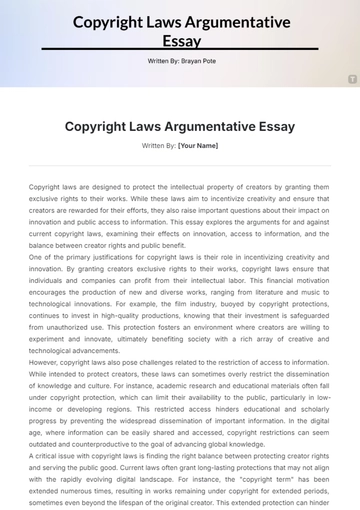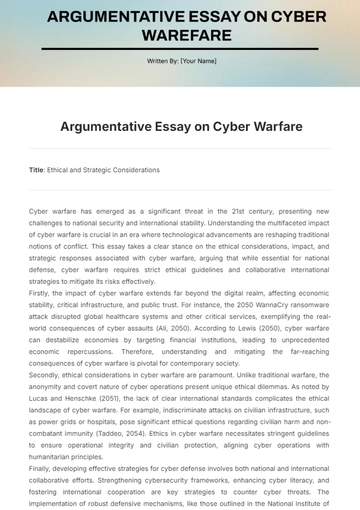Free Technology in Education Argumentative Essay
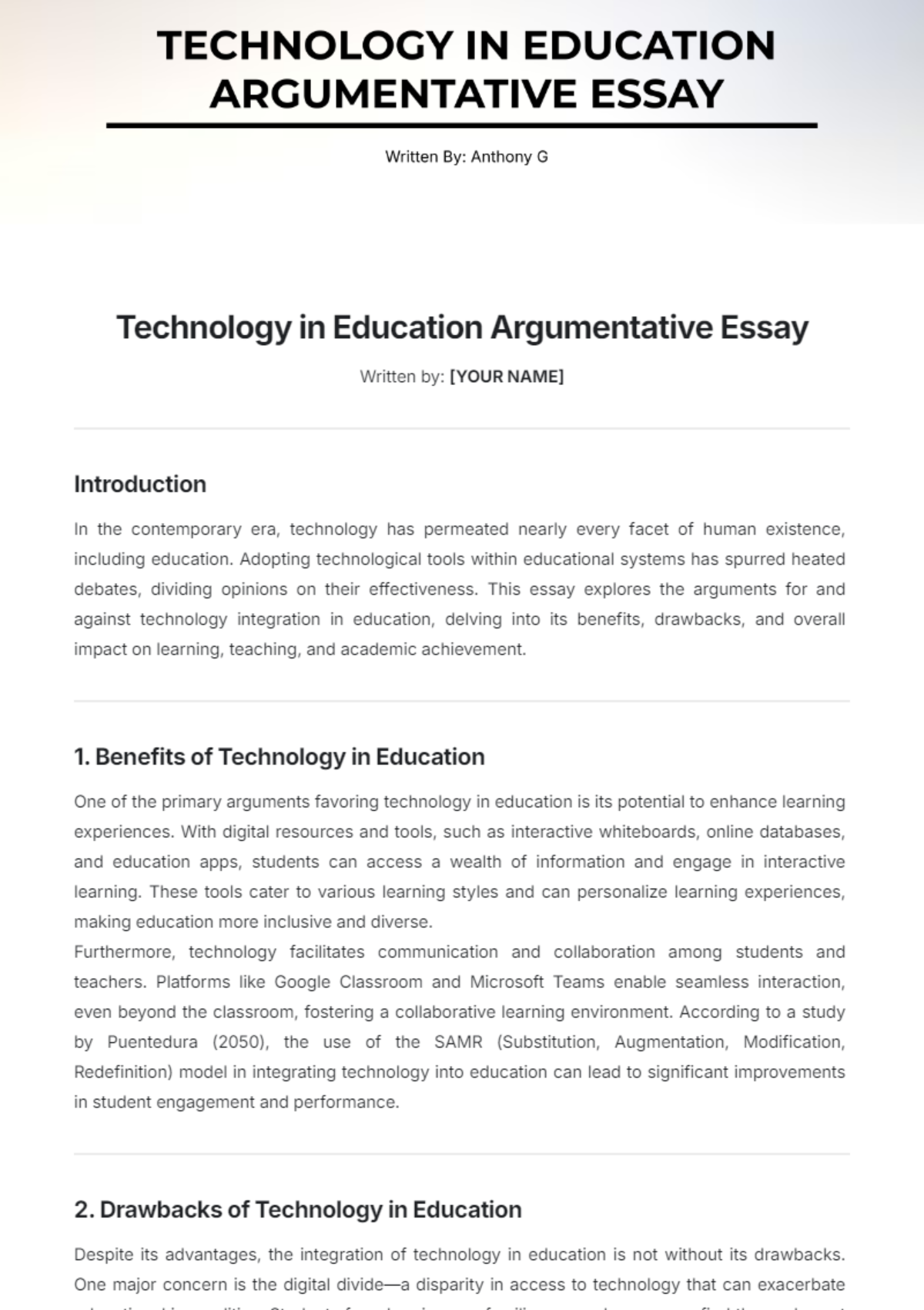
Written by: [YOUR NAME]
Introduction
In the contemporary era, technology has permeated nearly every facet of human existence, including education. Adopting technological tools within educational systems has spurred heated debates, dividing opinions on their effectiveness. This essay explores the arguments for and against technology integration in education, delving into its benefits, drawbacks, and overall impact on learning, teaching, and academic achievement.
1. Benefits of Technology in Education
One of the primary arguments favoring technology in education is its potential to enhance learning experiences. With digital resources and tools, such as interactive whiteboards, online databases, and education apps, students can access a wealth of information and engage in interactive learning. These tools cater to various learning styles and can personalize learning experiences, making education more inclusive and diverse.
Furthermore, technology facilitates communication and collaboration among students and teachers. Platforms like Google Classroom and Microsoft Teams enable seamless interaction, even beyond the classroom, fostering a collaborative learning environment. According to a study by Puentedura (2050), the use of the SAMR (Substitution, Augmentation, Modification, Redefinition) model in integrating technology into education can lead to significant improvements in student engagement and performance.
2. Drawbacks of Technology in Education
Despite its advantages, the integration of technology in education is not without its drawbacks. One major concern is the digital divide—a disparity in access to technology that can exacerbate educational inequalities. Students from low-income families or rural areas may find themselves at a disadvantage, lacking essential technological tools such as computers and reliable internet access.
Additionally, the over-reliance on technology can lead to diminished critical thinking and problem-solving skills. When students depend too much on digital tools for answers, they may not develop the ability to analyze and synthesize information independently. Carr (2050) argues that the omnipresence of technology can alter cognitive pathways, potentially reducing attention spans and deep thinking capabilities.
3. Impact on Teaching and Academic Achievement
Technology also impacts teaching methodologies and academic achievement. Teachers must adapt to new teaching technologies, often requiring substantial professional development. While this can be an opportunity for professional growth, it can also place a burden on educators who may already be stretched thin.
The effect of technology on academic achievement remains a subject of debate. Some studies, such as those conducted by Schacter (2050), suggest that technology can improve student performance in subjects like mathematics and science. However, other research, such as the OECD (2051) report, indicates that frequent use of technology in classrooms does not necessarily correlate with better student outcomes and may even hinder learning in some cases.
Conclusion
In conclusion, while technology in education offers several benefits, including enhanced learning experiences and improved communication, it also presents challenges such as the digital divide and potential impacts on cognitive development. The influence of technology on teaching methods and academic achievement is complex and multifaceted, requiring careful consideration and balanced integration. Educational institutions need to navigate these challenges thoughtfully, ensuring that technological adoption equitably enhances learning opportunities without compromising educational quality.
Bibliography
Carr, N. (2050). The Shallows: What the Internet Is Doing to Our Brains. W.W. Norton & Company.
OECD (2051). Students, Computers and Learning: Making the Connection. OECD Publishing
Puentedura, R. R. (2052). SAMR: A Model for Educational Transformation. Retrieved from https://hippasus.com/rrpweblog/archives/2013/10/05/SAMR_ABriefIntroduction.pdf
Schacter, J. (2053). The Impact of Education Technology on Student Achievement: What the Most Current Research Has to Say. Milken Exchange on Education Technology.
- 100% Customizable, free editor
- Access 1 Million+ Templates, photo’s & graphics
- Download or share as a template
- Click and replace photos, graphics, text, backgrounds
- Resize, crop, AI write & more
- Access advanced editor
The Technology in Education Argumentative Template from Template.net is fully customizable and editable, making it easy to adapt to your specific needs. You can personalize it in our AI Editor Tool for a seamless, user-friendly experience. Perfect for educators and students, this template ensures clarity and structure for crafting compelling argumentative content.

